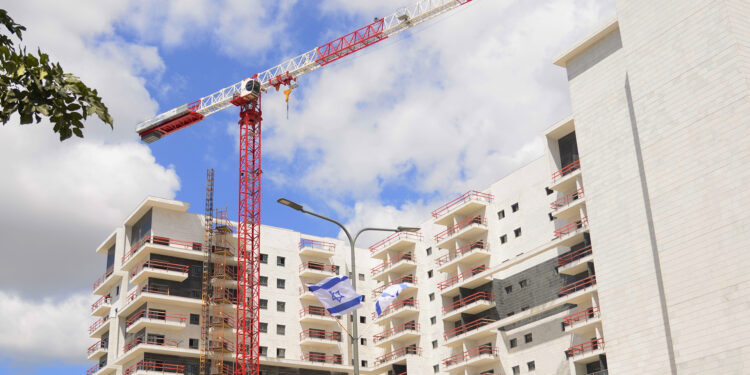The Israeli platform Globes reported that rent prices in Israel, which had stopped rising sharply during the first six months of the ongoing war, witnessed a noticeable return to rise in recent months, which particularly affected new tenants.
Data released by the Central Bureau of Statistics reveal a worrying trend that is increasing pressure on renters and broader economic indicators.
Hottest in major cities
The average monthly rent for a 4-room apartment nationwide in the third quarter of 2024 reached 5,200 shekels ($1,425), according to the platform. The data shows significant variation between regions:
- Tel Aviv: The average rent has risen to 8,500 shekels ($2,330), reflecting its status as the most expensive city in the country.
- Jerusalem: The average rent was 5,900 shekels ($1,620).
- Haifa: Remained slightly more expensive at NIS 3,800 ($1,050) per month.
- Beersheba: It was the most economical, with an average of 3,000 shekels ($822).
In central Israel, rents are now almost identical to monthly mortgage payments, adding additional challenges for renters, according to Globes.
Inflation and beyond
Rental prices make up 25% of the Consumer Price Index (CPI), according to Globes. Over the past year, the housing services index, which reflects rent changes, rose by 4%, outpacing general inflation, which reached 3.4%.
Without these sharp rent increases, overall inflation would have been closer to 3%, highlighting how rents are driving broader economic pressure.
In the period from October 2023 to February 2024, rent increases stopped due to the war, according to data seen by the platform.
However, since March 2024, the annual rise in the housing services index has been 5.5%, reflecting renewed upward momentum.
Challenges facing new tenants
New tenants are still the most affected. Traditionally, landlords raise rents by 6-9% when renting apartments to new tenants compared to previous tenants.
During the war, this gap narrowed significantly:
- In November 2023, the increase decreased to 5%.
- By April 2024, it had shrunk further to 2%, as a result of war conditions that reduced the search for new apartments and increased demand for properties that provide protection areas.
However, in recent months, the median rent increase for new tenants has risen to 4%, and the trend appears to be accelerating, according to Globes.
Globes states that the war had an initial effect in suppressing the rental market, as many landlords and tenants focused on safety, reserve service and other war-related disruptions.
Now, with these factors receding, landlords have regained control, especially in high-demand areas.
Furthermore, Central Bureau of Statistics data reinforces the belief that upward pressure on rents is likely to continue, driven by limited supply and high demand.
A broader challenge
The return of high rent prices after the war not only affects tenants – according to the platform – but also exacerbates the economic challenges facing Israel.
As housing costs rise, the effects ripple through the broader economy, increasing CPI inflation and burdening household budgets, especially for new renters who bear the brunt of price increases.



